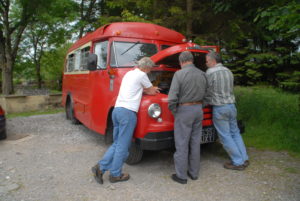Real life isn’t fiction. Though I’ve done more than some, my own life is, and has been, far too ordinary to excite interest. Fiction doesn’t reflect truth. Snippets of life, however, trigger imaginative possibilities that get expanded into stories. The action-adventure fiction I enjoy often reflects situations I wouldn’t like at all in reality, but that’s what escapism is about; experiencing adventures vicariously from the safety of an unspectacular lifestyle. It’s why people immerse themselves in films, computer games, or novels.
Fiction has been my first love, since I learned to read at the age of four. I mind very much when I pick up a mainstream novel full of errors, but I’m not an aficionado of literary fiction per se, because to me a compelling story trumps clever writing.
Early Years
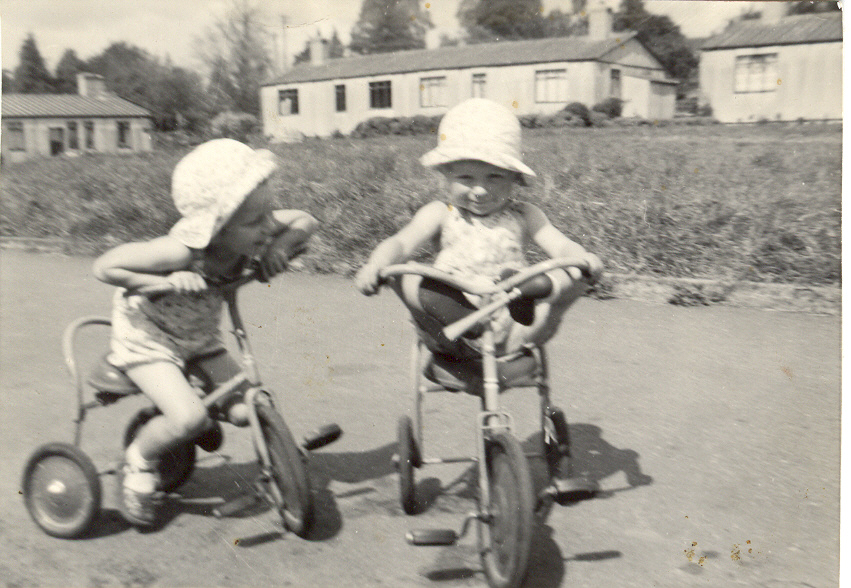
I was born in Somerset, UK, but my parents migrated to Essex with Dad’s job. There I glutted on fiction, which was better than the reality of ‘not fitting in’. My mother worked at the library before becoming a teacher, so we had access to a diverse stream of books. The word ‘genre’ didn’t penetrate my consciousness. I read anything that came my way: Alan Garner, C S Lewis, Arthur Ransome, T H White, Tolkein, Dickens, Delderfield, Alistair MacLean, and the list goes on. Discouraged from reading Enid Blyton’s ‘trash’, I was sure I’d missed out on something important. We moved back to the west country when I was a teenager.
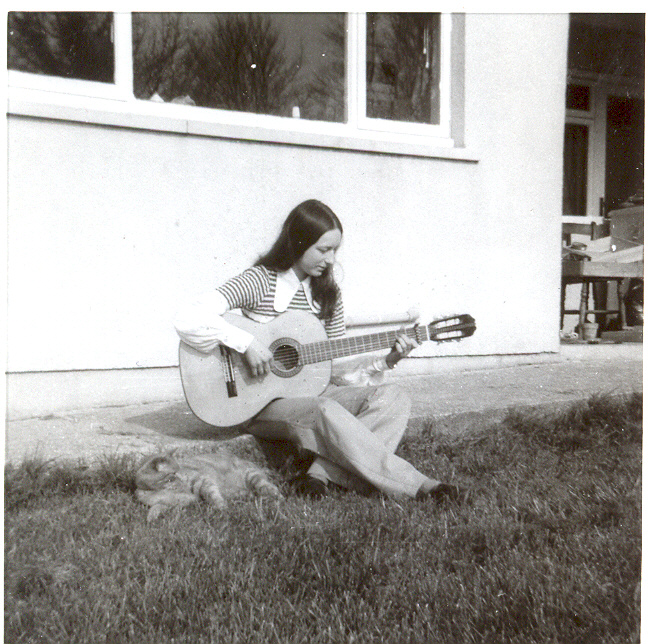
I had no time for impractical social fashions such as makeup or heels. I bought my first motorbike at sixteen (the Honda 360 below was my second bike, followed by a Triumph Bonneville) and took myself off to various folk festivals.
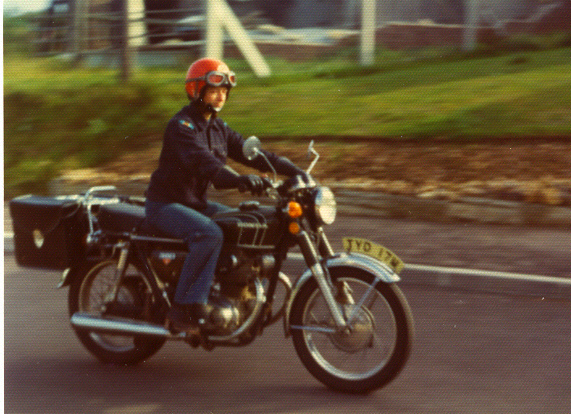
Caving was a passion for many years, clambering down waterfalls, battling with stream beds and sumps, climbing electron ladders or abseiling and prusiking. Snow-encrusted mountains were a regular winter challenge. I became a black belt in Shotokan Karate (see my novel Jessie Running), and tried archery and rifle-shooting, which I found too passive.

Most of all, I loved scuba-diving and sailing, though opportunities were not so frequent. Arthritis and injury finally put paid to many of these activities. Yes, that’s me, below!”
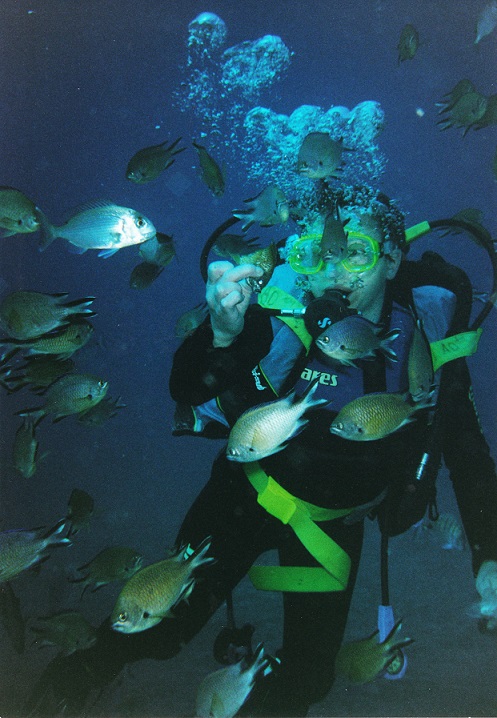

My children and I found time to enjoy the sea in other ways….
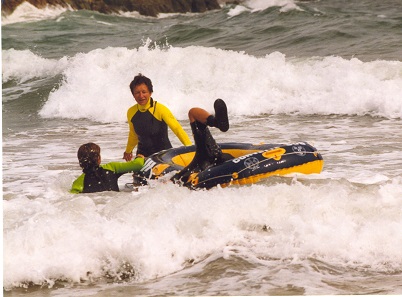
I was always creative. I made these outfits for the pink duck motorbike festival…

In New Zealand I rediscovered freedom in paragliding. I’ve tried many times to describe what it feels like to hang on the wind above a toy landscape, but it’s something that truly needs to be experienced before the knowledge hits home. The following sonnet expresses my frustration:

How can I tell you what it’s like to fly? The tug of earth receding far below, to look the curious eagle in the eye, where soft winds gather, purse their lips and blow; where Kevlar harp-strings thrum a constant dirge - insistent, harsh and primal, like the scream of seagulls over an ocean’s distant surge; where deep beneath, the speckled fishes stream, where soil proves no magnet for the feet and all the earth drifts slowly on its way, the curved wing stretching to the heat, the river a red gold echo of the day. I cannot tell you what it’s like to fly or live or breathe or love or see or die.
I always wanted to write novels, but didn’t have a clue how to go about it, so the idea festered for many years as I drifted through university, my first teaching post, marriage, and the arrival of two children. I never worked out where they came from….
Earning a living consumed my artistic soul. The first novel I wrote, in my twenties, was Mendip Moon, a Young Adult time-slip adventure (request a free e-copy via the Contact page if you’re willing to post a review), which delved into the romance of the dark past, with its legends, monsters and heroes. I still love magical worlds.
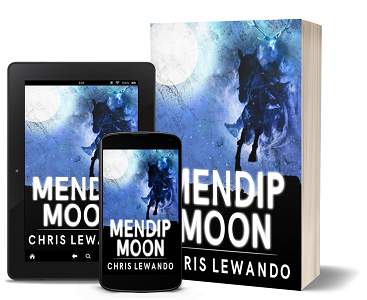
Working Life
While working full time through a variety of jobs, I wrote several romances and erotic novels, all of which were accepted for mainstream publication. This exercise undoubtedly strengthened my writing muscles, but failed to provide a livable income or open any fictional career doors, so life trudged on for a long while.
I didn’t settle well in any kind of paid work, dreaming my days away while working for self-aggrandizing bosses who delighted in stamping on the aspirations of free spirit. My working life, after teaching, included owning an interior design business, energy assessor for new-builds, and data analyst for a multi-national company. Then, after a breakdown, divorce and a recuperative year touring New Zealand, I took a stint at being PA to an actor-actress couple, which prompted a radio play trailer based on snippets from those days. Read it here.
Living the Dream

When my pre-owned husband and I decided we’d had enough of mainstream life, we bought a smallholding in Southern Ireland where we grow potatoes; he studies bogs; I write; and we both play Irish music for American tourists. Living the dream isn’t always the easy option, but I believe we are both now happily unemployable.

Since throwing off the chains of wage-slavery, I now have space to indulge in writing the stories I want to write. They have been classified within various genres, but all include a touch of the fantastic, a life or death scenario, and the thrill of the chase. My thrillers aren’t cosy. I don’t write about, or read, fiction revolving around psychological breakdowns, incompatible marriages, or plodding, defective detectives. My tales are action-based, with a hint of noir or sci-fi. My fiction has been compared to that of Tom Clancy, Vince Flynn, and Robert Heinlein, among others, and has been described as awesome and compulsive. I feel all gooey and warm inside when people tell me they’ve enjoyed my books. I’m only human; we all need a little pat on the back from time to time. I could do without the occasional poison-spray from internet trolls, though. I only pretend to be tough.
I took the Creative Writing MA in UCC, because I thought I’d meet kindred spirits; instead, I encountered literary elitism. I thought the course would be tailored towards writing for today’s market, but it wasn’t. I studied a raft of tedious fiction and dated memoirs and tried to find any kind of enjoyment in formless poetry (which apparently is not prose divided into lines, though the lecturer was unable to explain the difference). But it wasn’t all bad. I pushed myself to explore other forms of fiction, including my own piece of ‘literary’ writing, Sandy’s Very Private Diary, and ended up with several short stories and a memoir published in literary magazines, and a full-spread feature and a 12-part fictional soap published in regional newspapers. Not bad for someone three months into a knee replacement.
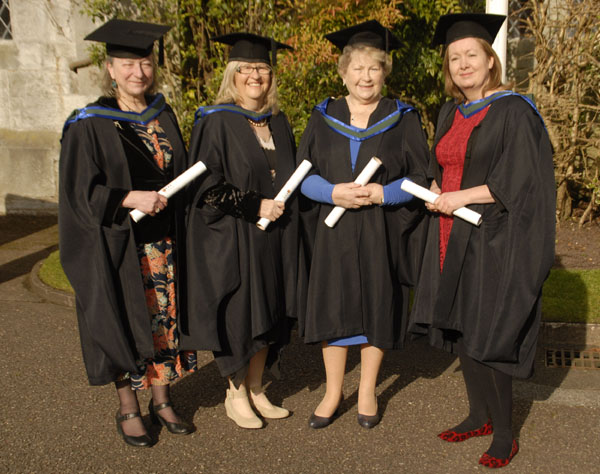
Becoming a full-time author
Seeing my published work (romance and erotica) enjoy a brief life before disappearing was heartbreaking, which is why I made the decision to to throw caution to the wind and join the veritable avalanche of self-published authors. My book Waymarks for Authors contains a lot of interesting snippets of information about fiction, garnered over many years, which would be of interest not just to authors, but to any reader or reviewer. It also delves into the self-publishing option, and poses questions about the future of fiction.
And finally, the ongoing project… We fell in love with this 1956 Bedford conversion in New Zealand, having lived in it for over a year. Sadly neglected while we were renovating our old farmhouse, it is finally being given the full treatment. The front windows are now in, the major rust is dealt with, and a reconditioned engine has arrived! Watch this space. One day, when we’re out and about, life and writing will perhaps coincide!
